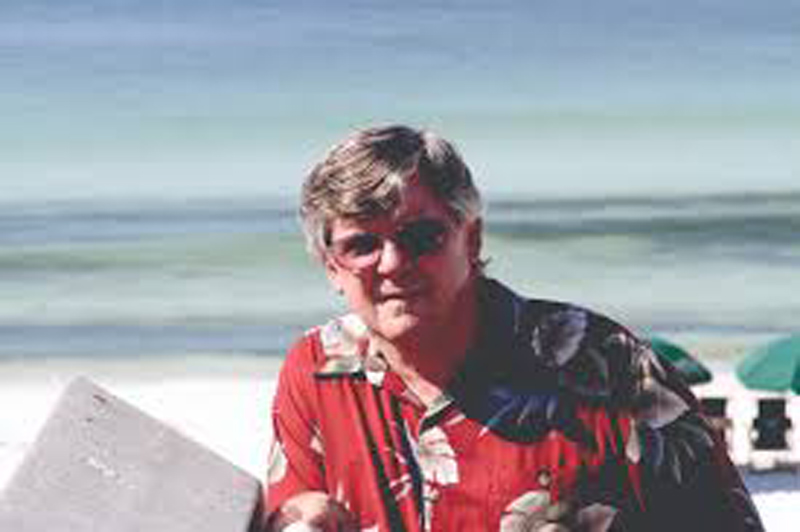By Hardy Jackson
My Daddy kept a file of things that interested and amused him – jokes, cartoons, and such. Some political, some “inappropriate,” some both.
When I was a lad, not yet in my teens, he said I could read what was there. Just don’t tell Mama. Thus we became co-conspirators.
One item in the file was a poem. Its title, “Son of the Beach,” immediately told me it was for our eyes only – fathers and sons need such secrets.
In rhyme and dialect it read:
I sell’a da fish.
I sell’a da crab.
I not’a so good.
And I not’a so bad.
I live in de shack
Where de sea gull she screech
I’m Tony Peroni, a son of the beach
Something “off color” that I could quote. Oh the joys of childhood.
It continued.
They say to me “Tony,
What fa ya stay here?
You makka more mun,
If ya sell’a da beer.”
I say to them “Man,
I don wanna be reech.
I just wanna be a poor son of the beach.
Tony, with his bad grammar and singular lack of ambition, was everything my Mama did not want me to be.
Then the verse took off in a direction that I did not understand.
I just hear some news that’s a-going around
‘bout dis man, Frankie, up in Washington town
Who dey say wants to push Thanksgiving around.
Well, if dat be true, den he and me each,
Be two different kinds of de son of the beach.
Say what?
So, I asked, and Daddy told me the story.
It was 1939. The Great Depression was still troubling the land. The big retailers were hoping that the Christmas shopping season, the weeks between Thanksgiving on the last Thursday in November, and the 25th of December, would boost the bottom line and get them out of the year with a profit.
Then someone noticed that November 1939 had five Thursdays. The last fell on the last day of the month, cutting a week off the Christmas shopping season.
Big retailers were upset, and led by the powerful Retail Dry Goods Association, they told the president so.
Not to worry, said Franklin Delano Roosevelt.
Now Thanksgiving had fallen on the last Thursday in November ever since President Lincoln declared it a day to give thanks for the Union victory at Gettysburg. Since the date was set by Presidential Proclamation, instead of by congress, it was not “official.”
So FDR reasoned that he could change it, and he did.
On August 31, 1939, Franklin D. Roosevelt, like Abraham Lincoln before him, issued a Presidential Proclamation decreeing that Thanksgiving would be on the fourth Thursday in November, not the last. Because November presented the same problem in 1940, that Proclamation was followed by another that said that Thanksgiving would be the fourth Thursday that year as well.
Big retailers were giddy with joy.
But they were almost alone in their happiness.
Printers, who already had 1940 calendars printed and ready, protested. So did small retailers whose customers were happy with things as they were. So did people who had made holiday plans based on the other date.
Most upset of all were college football coaches who had scheduled traditional Thanksgiving games on what was no longer Thanksgiving. One coach reportedly announced that if it were not changed back, he would never vote for a Democrat again.
Meanwhile the Tony Peronis turned against the president. Polls showed that 62% of Americans opposed Roosevelt’s plan.
Republicans, sensing a political advantage to be had, took to calling it “Franksgiving.” Alf Landon, FDR’s opponent in 1936, cited Roosevelt’s action as yet “another illustration of the confusion which (this president’s) impulsiveness has caused so frequently in his administration.”
States, which had the option of choosing one date or the other, split along party lines, so you had “Democratic Thanksgiving” and “Republican Thanksgiving.” Mississippi, Texas and Colorado decided to celebrate both.
Roosevelt waited out 1939 to see what would happen, but when retail sales did not increase significantly, he knew he was wasting a lot of political capital with little hope of any profit. Though he would later joke that he liked turkey so much that he tried to have two Thanksgivings, he quietly let it be known that he would not oppose changing back.
Congress settled the matter. It passed a joint resolution declaring the fourth Thursday in November the official Thanksgiving, and the president signed it.
I don’t think I understood all Daddy told me at the time, but after looking more closely at what happened, I have concluded that what inspired this poem should not be forgotten.
Put simply, politicians should not mess around with things people like.
End of lesson.
Any questions?
Harvey H. (“Hardy”) Jackson is Professor Emeritus of History at Jacksonville State University. He can be reached at hhjackson43@gmail.com.


